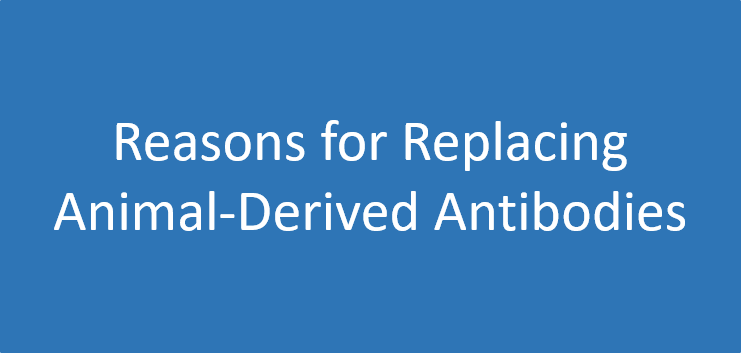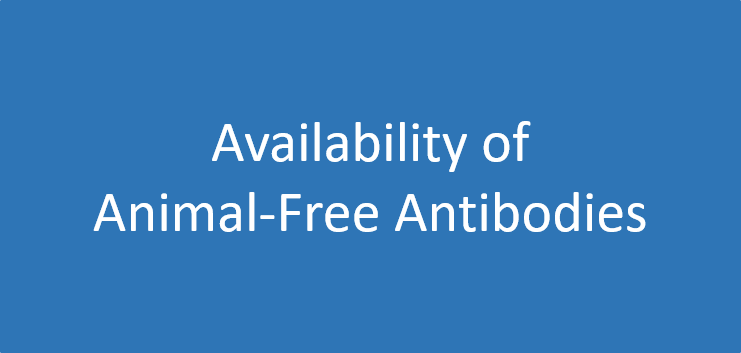In December 2019, the US National Toxicology Program Interagency Center for the Evaluation of Alternative Toxicological Methods (NICEATM) and PETA Science Consortium International convened an expert meeting to outline a pathway to improve the quality and reproducibility of biomedical research by accelerating the production and use of animal-free rAbs.1 A webinar series on the topic was also organised.
Background
An essential step in addressing the reproducibility crisis in research is to make the transition to animal-free sequence-defined rAbs or other non-animal affinity reagents. Animal-free rAbs have numerous scientific advantages over animal-derived antibodies, including high affinity and specificity, faster generation time, reduced immunogenicity, the ability to control selection conditions, and the ability to be generated against unstable, toxic, immunosuppressant, and non-immunogenic antigens.2,3
Animal-free rAbs can be used in all applications in which traditional antibodies are used, and their availability is increasing. International efforts have highlighted the importance of a large-scale transition from animal-derived antibodies to animal-free rAbs. In December 2018, a working group of the Scientific Advisory Committee of the European Union Reference Laboratory for alternatives to animal testing, a division of the European Commissions’ Joint Research Centre, reviewed the scientific validity and benefits of using animal-free technology to produce affinity reagents. The May 2020 report from this expert working group stated that more reproducible recombinant reagents should replace the use of animals in the development and production of antibodies.4
While there are a handful of factors that have slowed the adoption of animal-free rAbs and other non-animal affinity reagents, all the barriers can be overcome and are less concerning than the use of unreliable animal-derived antibodies. We are working to increase the availability and use of animal-free rAbs by identifying funding opportunities for their development and use, increasing the availability of “catalogue” animal-free rAbs through partnership facilitation, developing consensus on the criteria to be used when conducting and publishing research using antibodies, and increasing awareness of the benefits and availability of animal-free rAbs. Please contact Katherine Groff at [email protected] if you would like more information or to get involved, or join the conversation on the LinkedIn group AFAs – Animal Friendly Affinity-reagents.
-
WORKS CITED
- Groff K. Increasing the use of animal-free recombinant antibodies. ALTEX. 2020:8-11. doi:10.14573/altex.2001071
- Gray AC, Sidhu SS, Chandrasekera PC, Hendriksen CFM, Borrebaeck CAK. Animal-friendly affinity reagents: Replacing the needless in the haystack. Trends Biotechnol. 2016;34(12):960-969. doi:10.1016/j.tibtech.2016.05.017
- Groff K, Brown J, Clippinger AJ. Modern affinity reagents: Recombinant antibodies and aptamers. Biotechnol Adv. 2015;33(8):1787-1798. doi:10.1016/j.biotechadv.2015.10.004
- EU Reference Laboratory for alternatives to animal testing. EURL ECVAM recommendation on non-animal-derived antibodies. (2020). doi:10.2760/80554.



